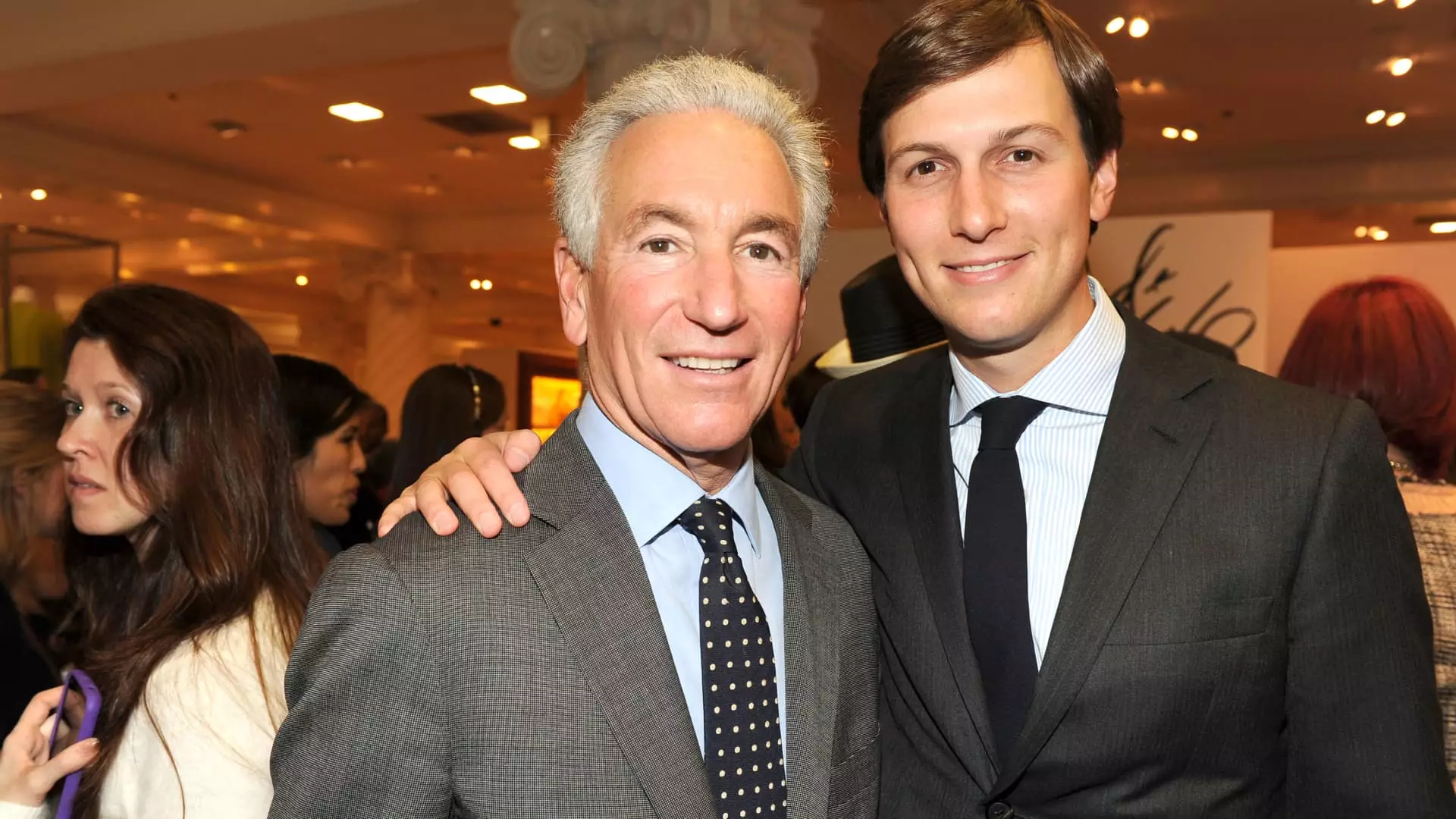The potential appointment of Charles Kushner as the U.S. Ambassador to France has raised eyebrows and ignited debates about nepotism and moral integrity within American politics. President-elect Donald Trump’s endorsement of Kushner—a prominent real estate developer and the father of his son-in-law, Jared Kushner—underscores the tendency among political leaders to favor family connections over traditional qualifications. Trump’s declarative post on Truth Social, highlighting Kushner as “a tremendous business leader, philanthropist, & dealmaker,” notably sidelines the controversial past that surrounds him.
A Cloudy History
Charles Kushner’s journey from a successful businessman to a convicted felon is filled with legal troubles that cast a long shadow over his potential ambassadorship. In 2005, he was sentenced to two years in prison after pleading guilty to several charges, including tax evasion and witness tampering. His conviction originated from a scandal where he orchestrated an elaborate revenge scheme against his brother-in-law who had cooperated with federal authorities. Kohner’s dubious tactics, involving deception and illicit recordings, have been denounced by many, including former U.S. Attorney Chris Christie, who categorically described his actions as “one of the most loathsome, disgusting crimes” he had ever prosecuted.
As the news of this possible appointment moves through the media, it also highlights a disconcerting pattern: the normalization of questionable ethics in government. Not only does this nomination favor personal ties over merit, but it also raises questions about the message being sent regarding accountability and moral character in leadership positions.
The Impact on U.S.-France Relations
A potential Kushner ambassadorship underscores broader implications for U.S.-France diplomatic relations. France has historically valued integrity in its diplomatic representatives, with expectations for ambassadors to possess a strong background in international relations and cultural diplomacy. Appointing Kushner may therefore spark unease among French officials and citizens who could perceive this nomination as an affront to diplomatic professionalism. If Kushner’s appointment comes to fruition, it may also embolden skeptics of U.S. governance and foreign policy across Europe, who already question the ethos behind American political decisions.
Moreover, the choice of Kushner reflects Trump’s controversial approach to politics, in which personal relationships often overshadow the qualifications of selected candidates. This mentality cultivates an environment where the political elite prioritize familial ties at the expense of national interests and standards.
The contemplation of Charles Kushner as ambassador to France encapsulates a fundamental shift in U.S. political norms. Rather than selecting representatives based purely on their expertise and ethical integrity, the emphasis appears to be veering toward personal connections and family affiliations. As this nomination faces scrutiny, it illuminates a growing concern among the public regarding the integrity of those in power and raises important questions about the direction in which American political appointments may lead. Moving forward, this case serves as a critical lens through which citizens can assess the evolving relationship between politics, ethics, and familial connections.


Leave a Reply